Industry welcomes new code of ethics for Digital Media, but implementation is key
Amidst growing concerns around lack of transparency, accountability and rights of users related to digital media and after elaborate consultation with the public and stakeholders, the Information Technology (Intermediary Guidelines and Digital Media Ethics Code) Rules 2021 has been framed in exercise of powers under section 87 (2) of the Information Technology Act, 2000 and in supersession of the earlier Information Technology (Intermediary Guidelines) Rules 2011.
While finalising these Rules, both the Ministries of Electronics and Information Technology (MEITY) and Ministry of Information and Broadcasting (MIB) undertook elaborate consultations among themselves in order to have a harmonious, soft-touch oversight mechanism in relation to social media platform as well as digital media and OTT platforms, etc.
Rules about digital media and OTT focus more on in-house and self-regulation mechanism, whereby a robust grievance redressal mechanism has been provided while upholding journalistic and creative freedom. The guidelines seek to address peoples’ varied concerns while removing any misapprehension about curbing creativity and freedom of speech and expression.
Also read:
What the new Code of Ethics for OTT and Digital Media mean for the industry
Digital Media Ethics Code Relating to Digital Media and OTT Platforms to Be Administered by Ministry of Information and Broadcasting:
There have been widespread concerns about issues relating to digital contents both on digital media and OTT platforms. Civil Society, film makers, political leaders including Chief Minister, trade organisations and associations have all voiced their concerns and highlighted the imperative need for an appropriate institutional mechanism. The Government also received many complaints from civil society and parents requesting interventions. There were many court proceedings in the Supreme Court and High Courts, where courts also urged the Government to take suitable measures.
Since the matter relates to digital platforms, therefore, a conscious decision was taken that issues relating to digital media and OTT and other creative programmes on Internet shall be administered by the Ministry of Information and Broadcasting but the overall architecture shall be under the Information Technology Act, which governs digital platforms.
Consultations:
The Ministry of Information and Broadcasting held consultations in Delhi, Mumbai and Chennai over the last one and a half years, wherein OTT players have been urged to develop “self-regulatory mechanism”. The Government also studied the models in other countries, including Singapore, Australia, EU and UK and has gathered that most of them either have an institutional mechanism to regulate digital content or are in the process of setting-up one.
The Rules establish a soft-touch self-regulatory architecture and a Code of Ethics and 3-Tier grievance redressal mechanism for news publishers and OTT Platforms and digital media.
Notified under section 87 of Information Technology Act, these Rules empower the Ministry of Information and Broadcasting to implement Part - III of the Rules, which prescribe the following:
Code of Ethics for online news, OTT platforms and digital media: This Code of Ethics prescribe the guidelines to be followed by OTT platforms and online news and digital media entities.
Self-Classification of Content: The OTT platforms, called as the publishers of online curated content in the rules, would self-classify the content into five age based categories - U (Universal), U/A 7+, U/A 13+, U/A 16+, and A (Adult). Platforms would be required to implement parental locks for content classified as U/A 13+ or higher, and reliable age verification mechanisms for content classified as “A”. The publisher of online curated content shall prominently display the classification rating specific to each content or programme together with a content descriptor informing the user about the nature of the content, and advising on viewer description (if applicable) at the beginning of every programme enabling the user to make an informed decision, prior to watching the programme.
Industry Reactions
Reacting to the new guidelines, Dr Subho Ray, President, IAMAI, said, “IAMAI has welcomed the much awaited Intermediary Guidelines 2021. The Guidelines, focused primarily on consumer complaint, will help consumers of online curated content, social media users and online news and current affairs resolve their complaints in a process oriented manner.”
As reported earlier, IAMAI had earlier issued a statement, wherein it had expressed its dismay over some media reports stating that the Government intended to notify guidelines for OTT streaming platforms shortly. “The industry has been working collectively to formalise transparent and stringent guidelines for self-regulation, but has been completely perturbed by the lack of any consultative process administered with the stakeholders that usually precedes such guidelines or regulations,” IAMAI said.
Also read:
IAMAI urges MIB to initiate public dialogue on draft guidelines for OTT
IAMAI further added, “Unfortunately, as things stand, as a responsible industry body and an ardent supporter of all Government policies and regulations, IAMAI is surprised to be not consulted on the draft guidelines for Online Curated Content Platforms (OCCPs) that is being quoted in the media. Also, apart from the 17 OCC platforms that are signatories to IAMAI’s Universal Self-Regulation Code, there are producers, actors and other stakeholders who, too, should have been consulted before the guidelines are published. We firmly believe that regulations arrived at through wide stakeholder consultations are much more effective and more easily implementable.”
Sameer Makani, Co-Founder and Managing Director, Makani Creatives, too, opined that the regulation on OTT and Social Media would help in streamlining the platforms that have misused unregulated space with unsuitable content. “It will largely enable viewers to make informed choices about the content they would like to consume. Furthermore, it will also enable the viewers in identifying the fake news with the accountability of the publishers. Overall, such regulations are necessary to bring the change and eliminate the turmoil caused by uncivilised content on the OTT platforms and unauthentic news reports that may create disturbance in the community,” he added.
Rajni Daswani, Director, SoCheers, observed that in recent times, a lot of controversial arguments on what is said on the Internet have kept Twitter and the Supreme Court busy. According to Daswani, “These code of use of social media is a good step towards safety on the Internet and if monitored by the Grievance Redressal that is set up, we should see cases of cyber-crime (especially the bullying, ghosting and all) reduce or much better managed than they are currently. Waiting to see how the self-regulation thing works out though, since this has been a completely non-regulated forum so far.”
In light of what has been the trending topics on the Internet in recent months, and the pressure that built up on the Government, releasing this code document was of key importance. Of late, the debate over giving OTT platforms the freedom for content has been questioned and this new code of ethics will hit OTT platforms and Digital News Media where it hurts – the content that they offered and the one that their users applauded/ loved. “Setting up the mechanisms for parental locks, classification of content is very doable, but the addressing of grievances will get them to settle for less controversial content. We’ll have to wait and see how much all parties are willing to settle for eventually,” Daswani further said.
Sajai Singh, Partner, J Sagar Associates, remarked, “The absence of Upload Filter requirements for Intermediaries and the self-censorship for OTT platforms does make me feel heartened that the Government did make a note of stakeholder opinion while framing The Information Technology (Intermediary Guidelines and Digital Media Ethics Code) Rules 2021 (2021 Rules); though elements of traceability, local address requirement and 24-hour take-down will surely put pressure on social media intermediaries.”
Prof (Dr) Nigam Niggehalli, Dean, BML Munjal University, was of the opinion that many aspects of the rules are not unreasonable in themselves. He elucidated, “The rules are trying to regulate the more unsavoury features of social media and OTT content-pornographic content and fake news being the two most obvious problems. The real issue, which we will have to wait and watch, is to see how the rules are implemented and whether more bureaucratic supervision will lead to more stifling of freedom of expression. One more issue with the rules is that the grievance redressal and oversight mechanism for social media intermediaries must be thought through properly. One can look at the Facebook oversight board model to see if a body that is independent both of the social media intermediaries and the government can act as an effective arbitrator in disputes over the legitimacy of digital content.”
According to Munnish Puri, Founder & CEO, Rainbox Studios, a division of Rainshine Entertainment, “A level playing field for content consumption classification across multiple streams is a natural progression, especially when content now reaches out far more broadly than ever before.”
Vivek Agnihotri, Member of Central Board of Film Certification (CBFC) and Cultural Representative of Indian Cinema at ICCR, also reacted positively to the Government’s decision to impose stringent guidelines on social media and OTT platforms. He said, “It has been a long-pending demand, especially of teachers, parents and activists, to control the perversion on OTT platforms. It is in a way good to know that the new guidelines address it. More importantly, the Government has also made sure that if anyone has an issue, the complaint will have to be registered within 24 hours and the matter has to be sorted out within 15 days of filing the complaint. This also allows the public to be involved and be heard. Now, we will also know who we will be talking to, especially with regards to social media, which is a good thing.”
Vibhu Agarwal, CEO ULLU remarked, “We welcome the new guidelines on OTT by the Union Ministry and will definitely agree and abide by it. However, I have realised that people will still not be silenced. In a country like India it is difficult to please everybody. However, being part of the industry we will adhere to the norms set out but request the ministry to then provide us their support, protection and surety if there are still questions raised at us."
Adgully had reached out to several digital and OTT players to get their reactions and views on the new guidelines. However, we hadn’t received any response till the time of filing this report. Some refrained from commenting on the development at present.







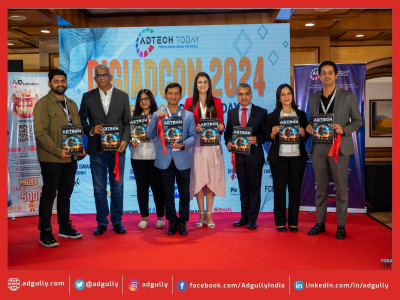
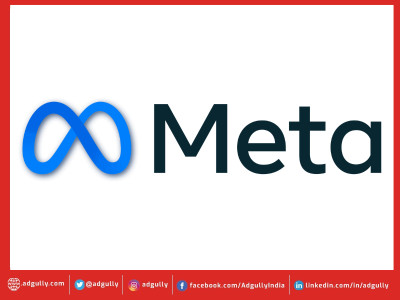


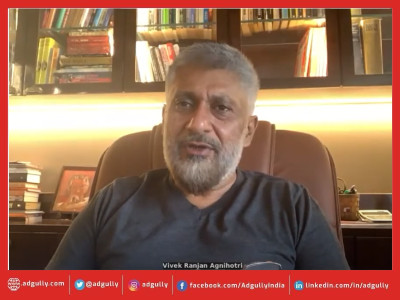

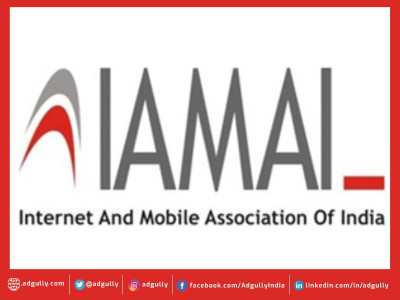


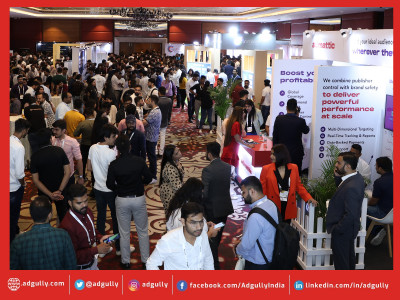

Share
Facebook
YouTube
Tweet
Twitter
LinkedIn